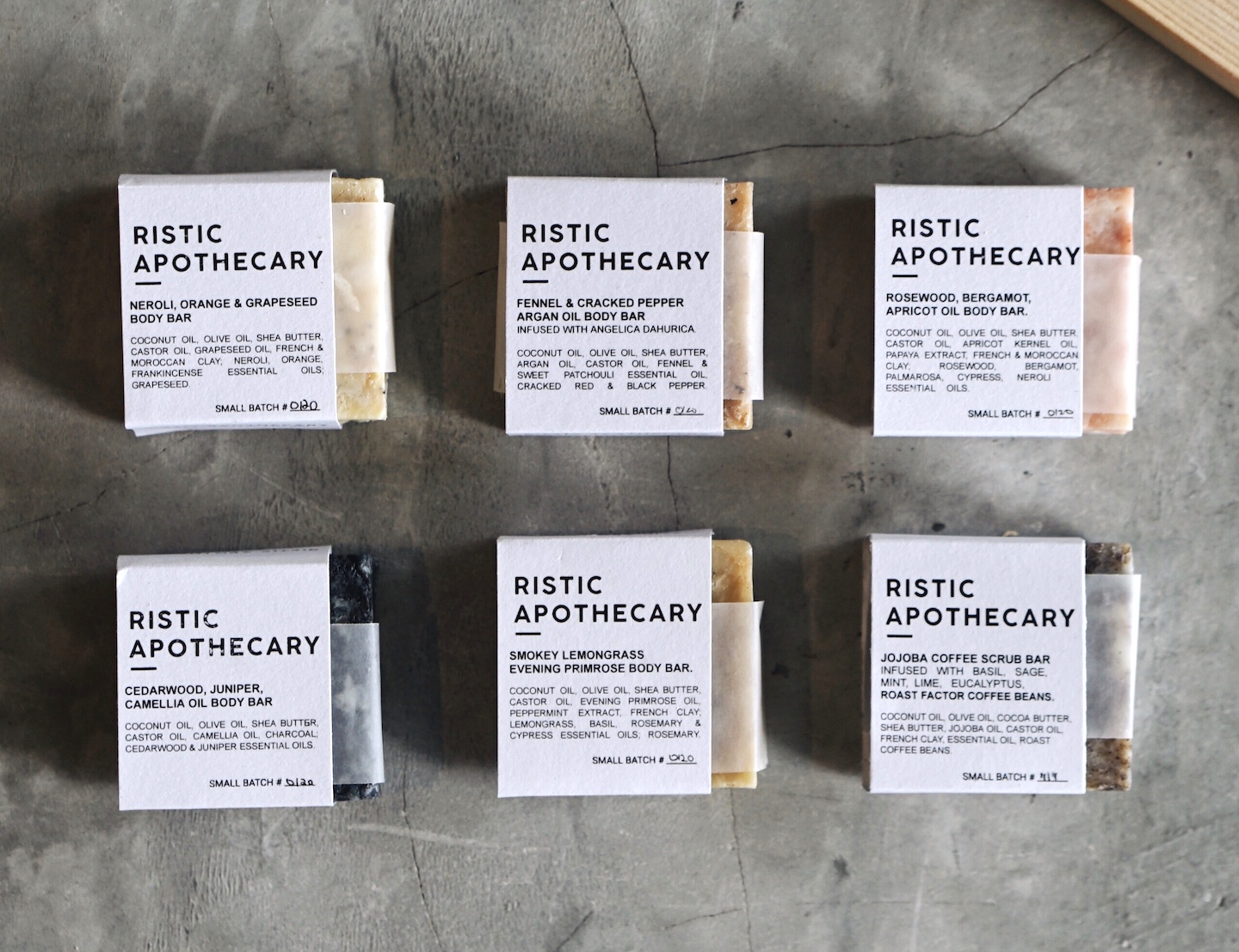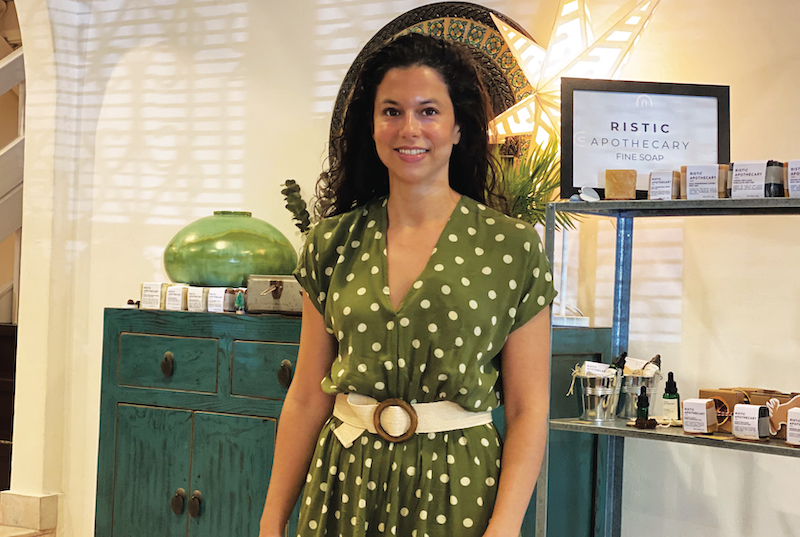
Ristic's soaps are full of richness that replenishes the skin's oils rather than stripping it all off (All photos: Ristic Apothecary)
When Nicole Ristic develops handmade soaps, she starts with a problem. “How I go about it is I start with an issue, like puffiness or dryness, and then think about how I can address it in a really natural way that won’t aggravate your skin,” she says. In fact, this is the way she began making soaps in the first place — to placate her own itchy skin.
Unsatisfied with the soaps available, Ristic tested out recipes online but was still not happy with the results. “They didn’t really work because they weren’t customised for me. So, I started looking at how to make it from scratch, without any input from anyone. I had really itchy skin and wanted something with a lot of argan oil and shea butter because these are moisturising and soothing. I started with these as the base and from there, I experimented until I came up with the recipes I use now. I did extensive research and a lot of testing, and even made a lot of mistakes,” she says.
Doing charity work full-time, Ristic had no intention of selling her bars of soap. Her eventual business venture began quite by accident. “I was helping to organise the community market just downstairs in my condo, and we were really struggling to get vendors. Then someone suggested that I sell my soap in the market, so I thought, ‘Okay. I’ll try.’ I only had 12 bars at the time. I put them on the table and managed to sell a couple of them. I just loved it. It was crazy because I had done so much research for myself, but had never really thought that it would be useful for anyone else. People were asking me questions that I myself initially had, and now had the answers to.”
img_4393.jpg

So, in December 2018, with a little design help from an acquaintance, Ristic Apothecary was born. Ristic says she faced quite a few stumbling blocks. Her “obvious challenges” included figuring out how to run a business, from managing finances to planning production. “Then there are your own psychological challenges, where you think, ‘What am I doing? Are people judging me?’ I would say half the challenges are those we make up in our heads.” She gained confidence in herself and her product as time went on, as she perfected her recipes and methodology.
What makes Ristic’s soaps better than the generic ones available are that they are very gentle on skin. They also contain moisturising ingredients, leaving skin nourished. “When your shower, the soap rinses all the dirt, bacteria and oil off your skin — that’s why when you get out of the shower, your skin initially feels tight. My soaps cleanse, but they are so full of richness that you’re basically replenishing the skin’s oils rather than stripping it all off,” she says.
Ristic Apothecary stocks handmade soaps in variations such as smokey lemongrass, sweet kaffir lime and chamomile, and fennel and cracked pepper. These rustic-looking soaps are chock-full of goodness that is completely natural. The packaging is also minimalistic and plastic-free. “I wanted to sell naked bars without any wrapping but at markets, this is not realistic because people touch them and want to smell them. So, I ended up putting a piece of paper that’s recyclable on top and an underlay of wax paper underneath to keep it clean,” says Ristic. She also has batik pouches sewn by refugee women for customers to store their new bars of soap.
image1.jpg

In the hope of supporting smaller businesses and individual artisans, Ristic works hard to source her ingredients locally. She even spent a month in Langkawi getting to know skilled artisans. For instance, she bought freshly pressed coconut oil from a woman in a kampung for a batch of her soaps. While the Movement Control Order (MCO) and stringent travel restrictions have made it difficult for her to develop more of these relationships, she aims to keep trying.
While slowly amping up production to meet demand, Ristic wants to maintain the high quality and standard of care when crafting each bar. “I started by only making six bars at a time, and then 12. Then I just carried on increasing as I became more competent. Now, I think my maximum batch is 40 bars and I don’t make any more than that at a time. I always do everything really small so I can control it and see what’s happening. I think once it gets too big, you lose sight of the details. My speed and efficiency are a lot better now, so I can do a few batches a day.” She now manages to fulfil corporate orders and larger batches, even up to 600 bars.
Ristic Apothecary soaps were mainly sold at bazaars, but with the lockdowns and Covid-19 looming over our heads, Ristic focused on selling them via Instagram and Poptron. Last November, she managed to launch a new product — the Superfood Daily Facial Oil — which she concocted because some medication she was taking made her skin incredibly dry. Containing a mix of oils such as sea buckthorn oil, sweet almond oil and other essential oils, this product has been a real hit with her customers.
As we enter our second MCO, the future seems quite uncertain. Ristic admits that she is unsure about planning the future of her business. While things may seem bleak, she is hopeful that the new normal will bring about something different. For instance, the last lockdown forced businesses to think outside the box and try new ideas such as private sales, where small groups can purchase items from a range of stores set up in small booths manned by minimal staff.
“I think if people are thinking about starting a business, I would say now is probably a really good time because everything has been disrupted. I think a new way of doing things we hadn’t even fathomed before will emerge, something even beyond Instagram. I don’t know what it is, but everyone is racking their brains and one person out there will crack it and it is going to be amazing. So, I would say now is definitely the time to try something new,” says Ristic.
This article first appeared on Jan 18, 2021 in The Edge Malaysia.


